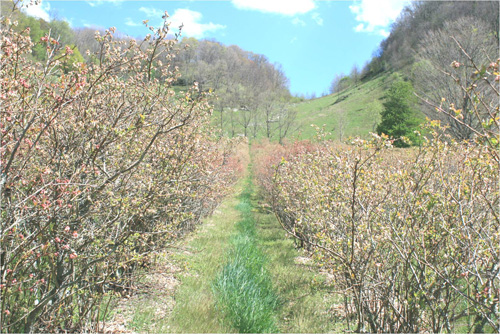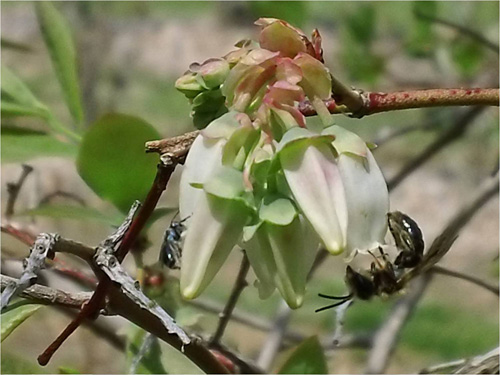Shelley Rogers is an entomologist and farmer, living in Cedar Grove, North Carolina. She studied pollination, specifically blueberry pollination. Shelley is deeply passionate about biodiversity. Recently we spoke with Shelley about her research, current occupation and more.
So let’s join to our latest round of interview with Shelley Rogers on ‘life as research scientist’:
Q. Let us start with your research topic. What is your research area? Will you please tell us a bit more on this? What did you find?
Shelley Rogers: As a Master’s student, I studied pollination in agricultural ecosystems. I was specifically interested in blueberry pollination, and my research was focused around questions such as which bees are pollinating blueberry; do different pollinator species vary in the frequency of their visitation, their efficiency at pollinating blueberry, or with respect to the environment; and how do these bees interact and affect one another. For my most recently published study, I wanted to see if successful blueberry pollination was related to bee species diversity, and, if so, how. I found that pollination increased with increasing diversity, and proposed several mechanisms underlying this relationship.

Shelley Rogers: ‘I studied pollination in agricultural ecosystems. I was specifically interested in blueberry pollination, and my research was focused around questions such as which bees are pollinating blueberry?’
Q. Why is this important? (i.e. why should the general public care about this?)
Shelley Rogers: We should care about agricultural pollination because, for the most part, we depend on one species, the honey bee, to provide pollination for the crops that make up 35% of our diet. Putting all your eggs in one basket is never a good idea, particularly when it comes to the world food supply. Many other bee species are present and provide pollination alongside honey bees in these crops. It is essential that we learn more about these additional species, their role as pollinators, and how to support their populations.
Q. Is this truly new information or does it confirm what other researchers have found?
Shelley Rogers: Our findings are new for our crop and study system, but corroborate trends that other researchers have noted in different crops.
Q. How did you land here? Was it your goal?
Shelley Rogers: I have kept honey bees for a number of years, and have always been passionate about biodiversity. My advisors gave me the opportunity to combine these two interests by examining bee species diversity in relation to pollination. This had not exactly been my goal, when planning to enter a graduate program, but it ended up suiting me much better than I could have planned!

Shelley Rogers: ‘We should care about agricultural pollination because, for the most part, we depend on one species, the honey bee, to provide pollination for the crops that make up 35% of our diet.’
Q. How many hours a day you spend for study. How you arrange other side of your life like social activities so to say?
Shelley Rogers: As a graduate student, I tried to maintain a healthy balance between school, my research, and my personal life. I had worked for several years before entering the program, and thus was in the habit of working in a very focused and goal-oriented manner during a well-defined workday (i.e. 8am – 5pm). I kept this basic schedule up in graduate school and guarded the evenings and weekends for myself, my hobbies, and friends. Of course, it didn’t always break down so neatly and I spent many evenings studying. However, this general organization of my time helped me to maintain a healthy mental state and avoid burnout.
Q. Are you satisfied with your results? What about your publications?
Shelley Rogers: I am incredibly satisfied with our findings and publicaitons!
Q. If you would not be at your current profession, what other options would you consider for your career?
Shelley Rogers: I am currently working on a small organic farm and making plans for starting my own small-scale fruit, nut, and honey farm. For me, this is the fulfillment of a life-long dream.
Thank You.
